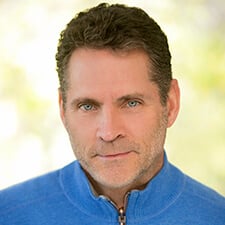So, What Does It Take to Write a Book?
Recently, I was fortunate to publish my third book on the ever-amazing and always-changing world of IT. The new book, titled One IT, One Business, looks at the new singularity of IT and how this enables the organization to create an engine of innovation and speed that is desperately needed in virtually every business today. The book also looks at the unstoppable influences that the unification of IT will have on the business.
The IT Organization and the Business Are More Closely Linked than Ever Before
With this milestone (and celebration) of publishing my latest book now completed, I sat down with Ivanti’s Ashtyn Creel to take some questions about the journey of writing and publishing a book.
How many books have you written, and how many have you gotten published?
KS: The new book was my third and remarkably all three books are now published and available on Amazon and Barnes & Noble.
My first book, The Practical Guide to World-Class IT Service Management, looked at ITSM and provides a practical framework for implementing and operating Service Desk and Service Management. My second book, The IT Imperative, focuses on a new strategy for IT and the agenda that will drive the transformation of IT for the next decade. The third and newest book was highlighted earlier and explores the why and how of a new unity in IT and the powerful influence this model will have on the future of the business. What we come to understand is that the IT organization is now more strategic than ever given the tremendous value of data and technology to any organization.
What is the general process for getting a book published?
KS: It all begins with an idea. And I always tell people that the first step is very important—select a topic you have some knowledge of—and equally important, select a subject you will enjoy writing about. It should be a topic that you are excited sharing your ideas around and this excitement will become very important later when challenges appear that are always part of the writing process.
Your focus as a writer will be on creating a manuscript that will be interesting to your target audience and be something your readers will enjoy. In the beginning, keep your focus on the manuscript and don’t worry too much about getting the book published. When you write a good manuscript, everything else will fall into place. Once you have made the decision to write a book and have selected your topic, you will need to find a writing cadence and process that works for you. Personally, I discovered after lots of setbacks, delays, and frustrations that I need to write every day—and normally first thing in the morning or in the early evening works best. Set a reasonable goal for how many words you need to write each day or week and then stick to that goal. Some days will be easy, and the words come fast and furious. Then, other days it will be a struggle, but the key is to write consistently and according to your schedule.
When you sit down to write, write. Don’t get distracted and mess around. This is your dream, so make it happen. Set some milestones and then celebrate when you hit those goals. For example, finishing your first chapter, hitting the halfway point of the book, finishing an especially challenging section or chapter, and of course, finishing the manuscript. The only other thing I would add is that it can be very helpful in the beginning to draft a storyboard of your book—an informal outline of the chapters and a brief description of what you want to discuss in each chapter. This is something I had to figure out on my own and it has now become a key to writing my books and preserving the right flow from start to finish. My belief is that if you can draft a good storyboard and it feels right to you, the book is there waiting to come alive.
What are misconceptions people have about getting a book published? Is it easier/more difficult than you thought it would be?
KS: That’s a great question and not a simple one. One misconception is that authors somehow have special skills or special training that enable them to write a book. That is not true. Anybody can be an author, regardless of your experience, education, and background. It’s in fact much more about commitment and determination than anything else, along with the desire to chase a dream.
I learned so much in writing my first book—in some respects it was easier than expected because I discovered there is a joy in the process itself and the creative element of bringing a book to life and creating something that would be timeless. What I underestimated is the daily work necessary to create the book—the dirty work if you will. When people contact me about writing a book or I meet people at a book signing, I share with them that a book is about writing one word at a time, one sentence at a time. If you focus on the enormity of a full book and all that entails, it can be overwhelming. Just focus on writing on a regular schedule, focus on writing the next sentence and then the next paragraph, and don’t worry about creating a 500-page book. It will come to life a little at a time and, the next writing session is the most important one.
Get your writing done today—and worry about tomorrow when it comes. A lot of small steps will enable you to create something big. Also, just write and don’t worry about making the words perfect or worry too much about sentence structure and that stuff. Later, there will be plenty of time for your editors to help you with those things. It’s much more important to just get rough ideas captured on the page because ideas are what make the book.
How long does it take you complete the writing of the book itself?
KS: It will likely vary a great deal for different writers and different projects, but my complete cycle from the first writing session of the book to the completion of the manuscript is about six months. This includes a week or two of creating the storyboard, which is the first step and really helps me get my arms around the full scope of a new book. I try to keep an aggressive schedule and write every day because when I have a flow of ideas going and the book begins to take shape, I want to move faster and make the most of each day and each week. My daily goal for words is 500 to 800, but remember everybody is different and all that matters is finding what works for you and then sticking with it. Starting and stopping does not work in my experience. But I do know authors that only write on the weekend, for example, and that has worked for them. It’s important to realize that if you want to finish your book in the next one to two years—and you expect to have a 40,000 to 50,000-word book, which is about average for non-fiction—then you can begin to shape a schedule.
How long is it, typically, from when you start writing a book to when the complete process is finished, and the book is listed on Amazon?
KS: When we factor in the complete editing and formatting and publishing activities, it takes about a year from beginning to end. It might help to think of the book as something that will be timeless, something you hold in your hands and talk to people about for many years, so it makes sense to take the time to do it right. Hurrying or cutting corners is not a good idea. It’s much better to slow down and take all the time you need to get the right ideas shaped, or to improve an illustration for example, because that’s time that is always time well spent.
We are fortunate as authors today to have some great options available to us in terms of publishing. The traditional publishers are no longer our only option. There are many smaller independent publishers that can offer very reasonable packages to help get your book published. I strongly recommend you find one that will allow you to keep your royalties and can provide a proven ‘package’ of publishing services that are very reasonable. It is also possible to tap the skills of freelancers to complete parts of the book. Websites including www.upwork.com are a great resource and very reasonably priced. Look at a few of the independent and self-publishing options to find the right fit for your timeline and budget. It also helps to speak with authors that have worked with a specific publisher, and don’t hesitate to ask for references.
Do you have plans for future books?
KS: Yes, my plans are to write another three books on IT. The next book will focus on people and culture, and the new relationship between people and intelligent technology. This is a fascinating and timely topic. Then my plan is to write something a little different—a short novel about the life of an IT worker in today’s world and the challenges and opportunities that come along with working in IT and with the technologies of today. The third new book will take a look at the role of AI and Automation in the future of IT and the business.
Some people might think the world of IT is getting old and a little boring, but what I see is there are so many important and rich topics related to IT that need to be addressed, and so many stories that need to be told. In many ways, the future of business is now very much connected to data and technology, and it’s all but impossible for business to succeed without strong IT helping to lead the way.
Any advice you would give to people looking to write a book or get something published?
KS: First, if writing a book is something you have thought about for a while and something you have decided you really want to do, don’t let anyone tell you it can’t be done. I know you can do it because I did it. And if I can do it, anybody can.
At every step of your journey you will encounter people that will tell you why it won’t work or will focus on the challenges versus the remarkable rewards and the pure enjoyment of writing your book. Put these people to the side and keep moving forward. Don’t take ‘No’ for an answer because there is always a way to keep your dream alive. Sometimes you’ll move quickly and other times slowly, but the key is to keep moving and to never give up. A book will test your heart, soul, and mind, but the journey holds amazing experiences and a remarkable joy of accomplishing something very special and something timeless—something you can share with your friends and your family for generations to come. Always remember that you can do it!
I hope this short blog has provided some helpful ideas and tips to take the next steps in chasing your dream, whatever that might be. Good luck!
Keep the faith my friends.

